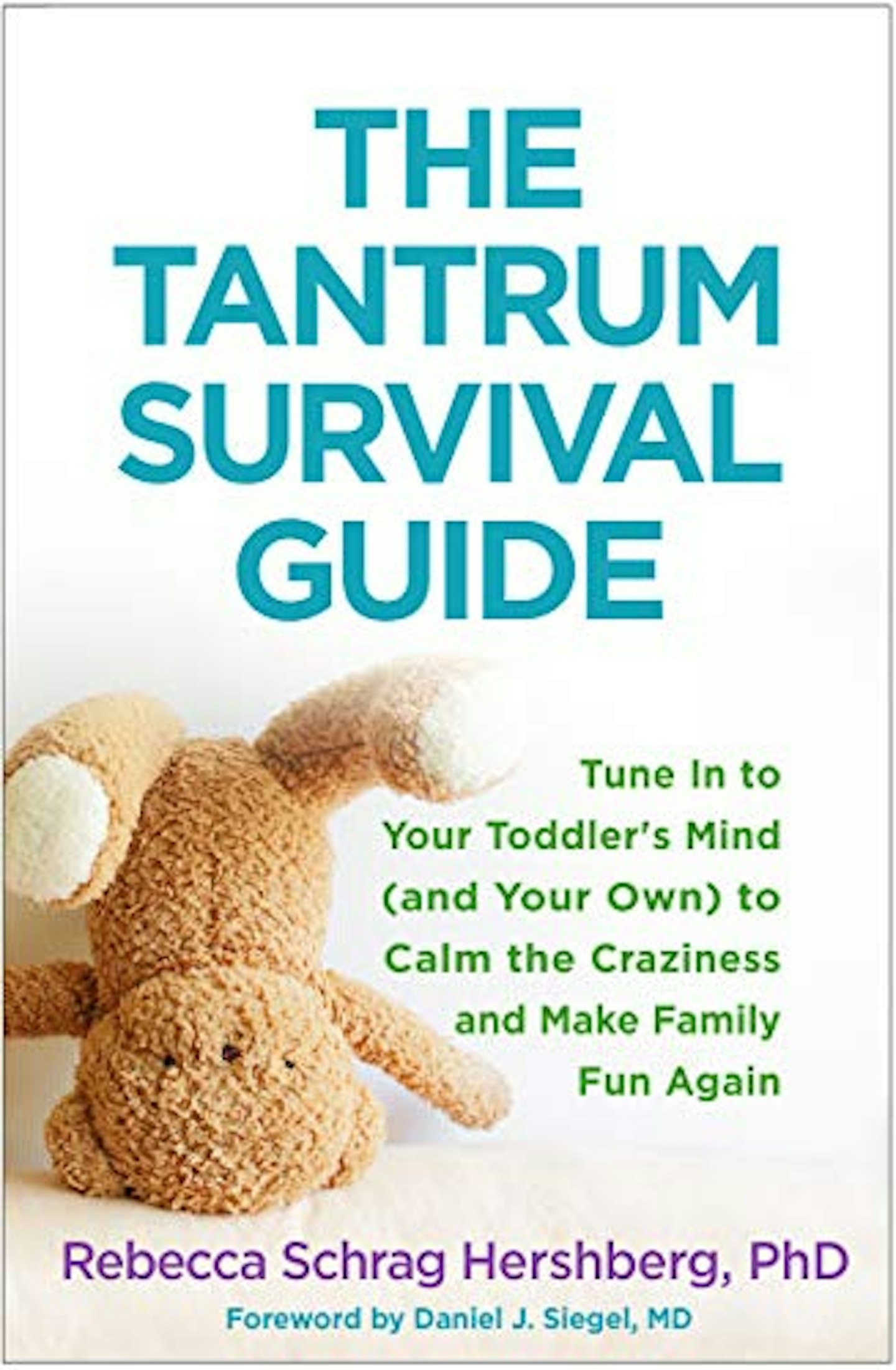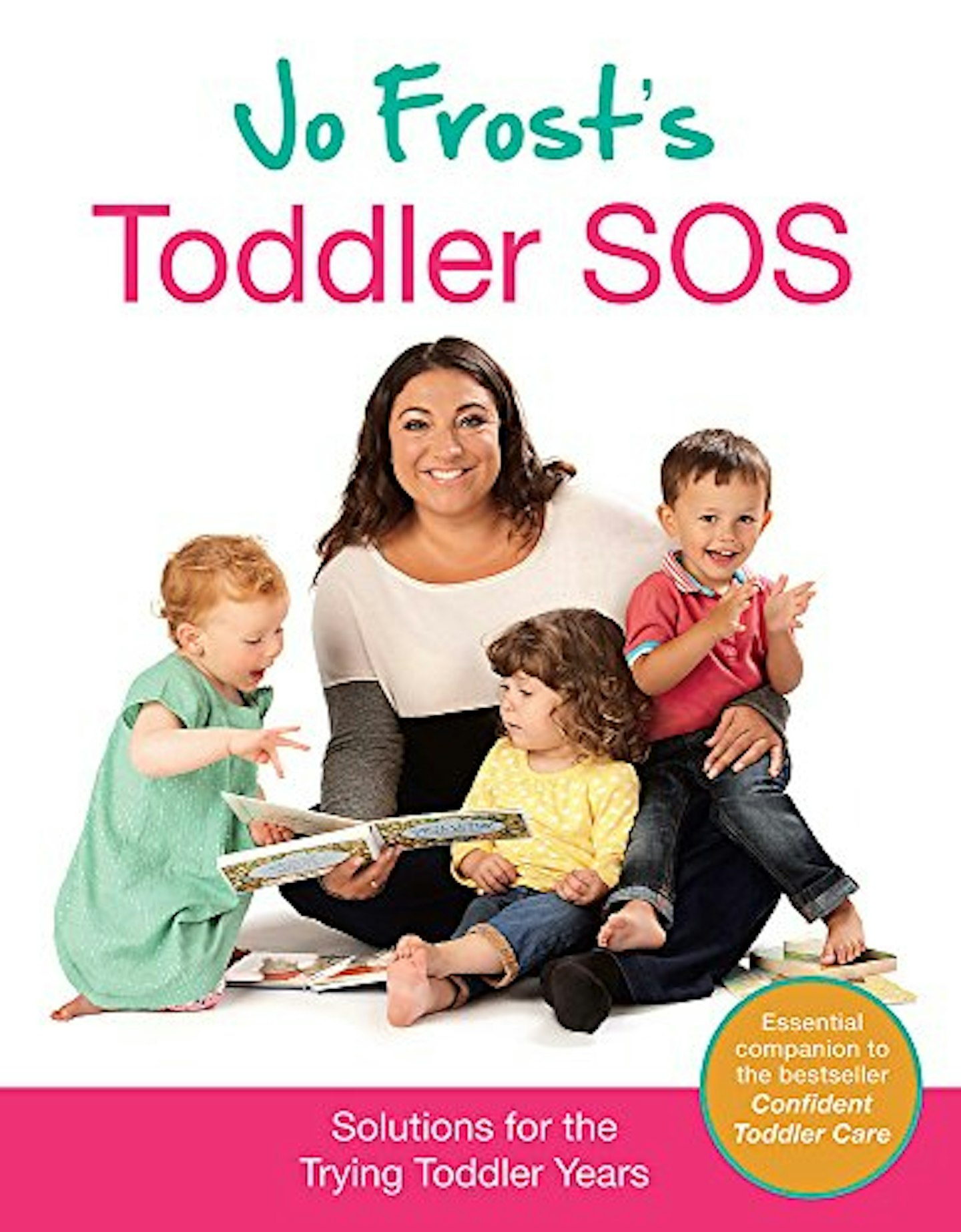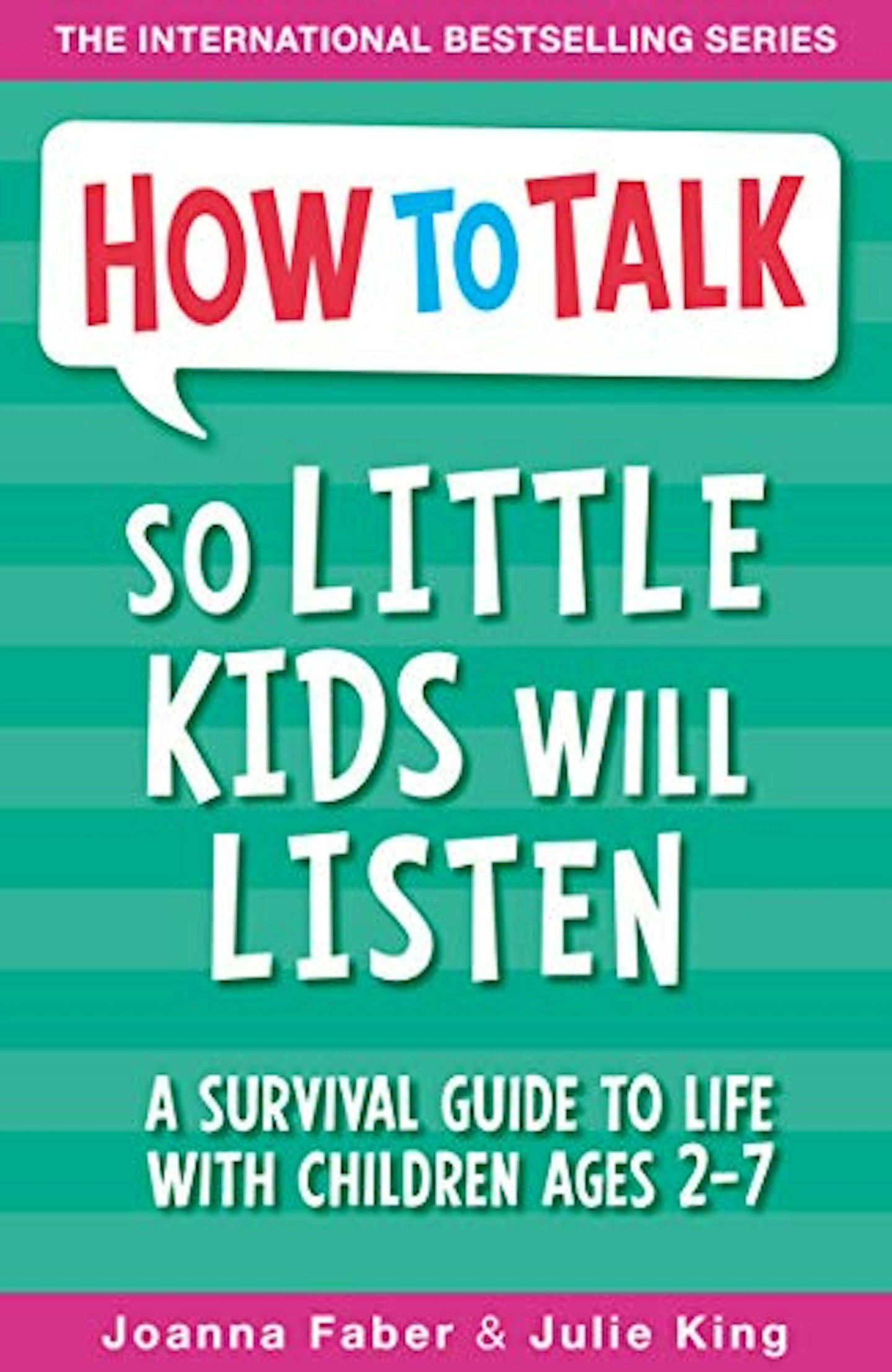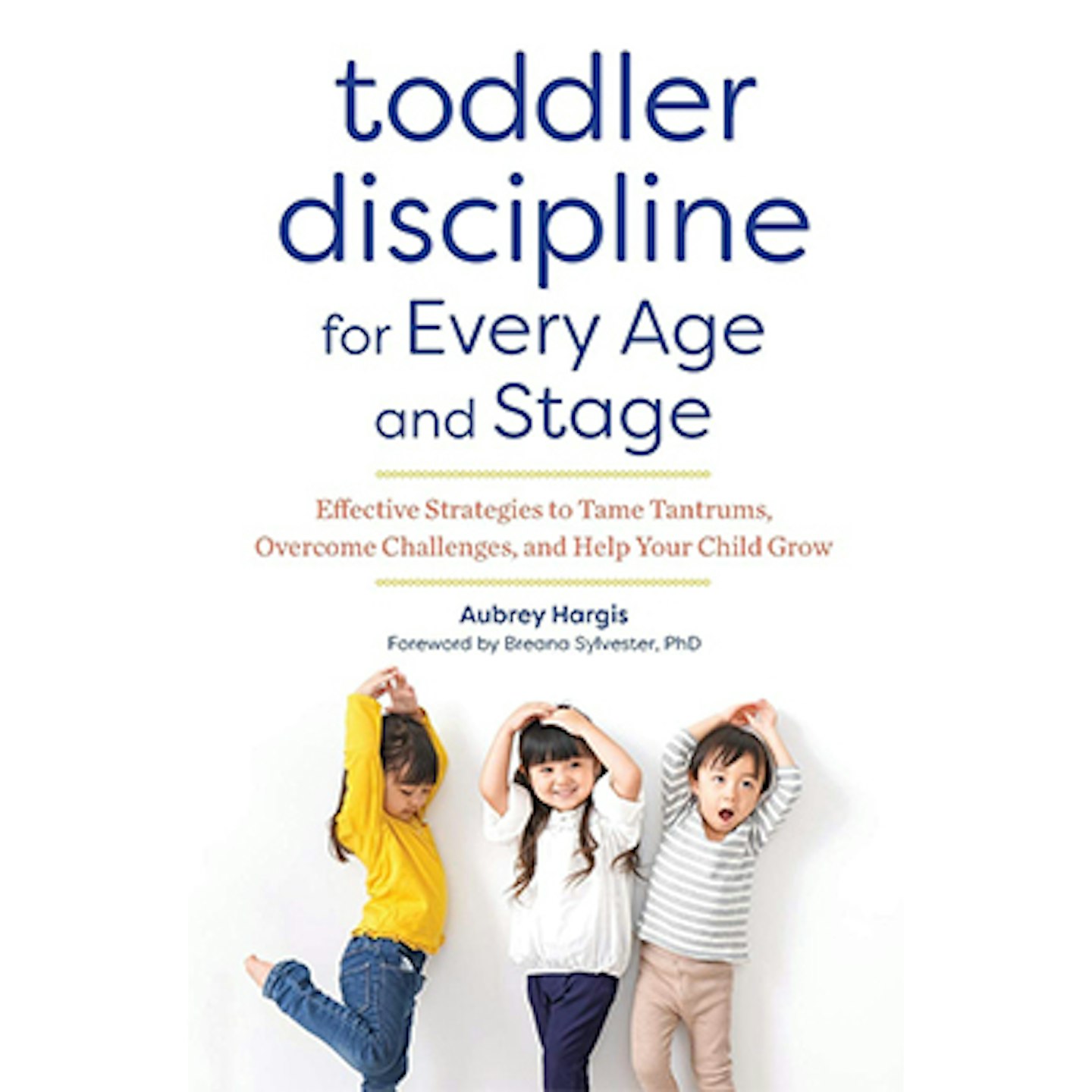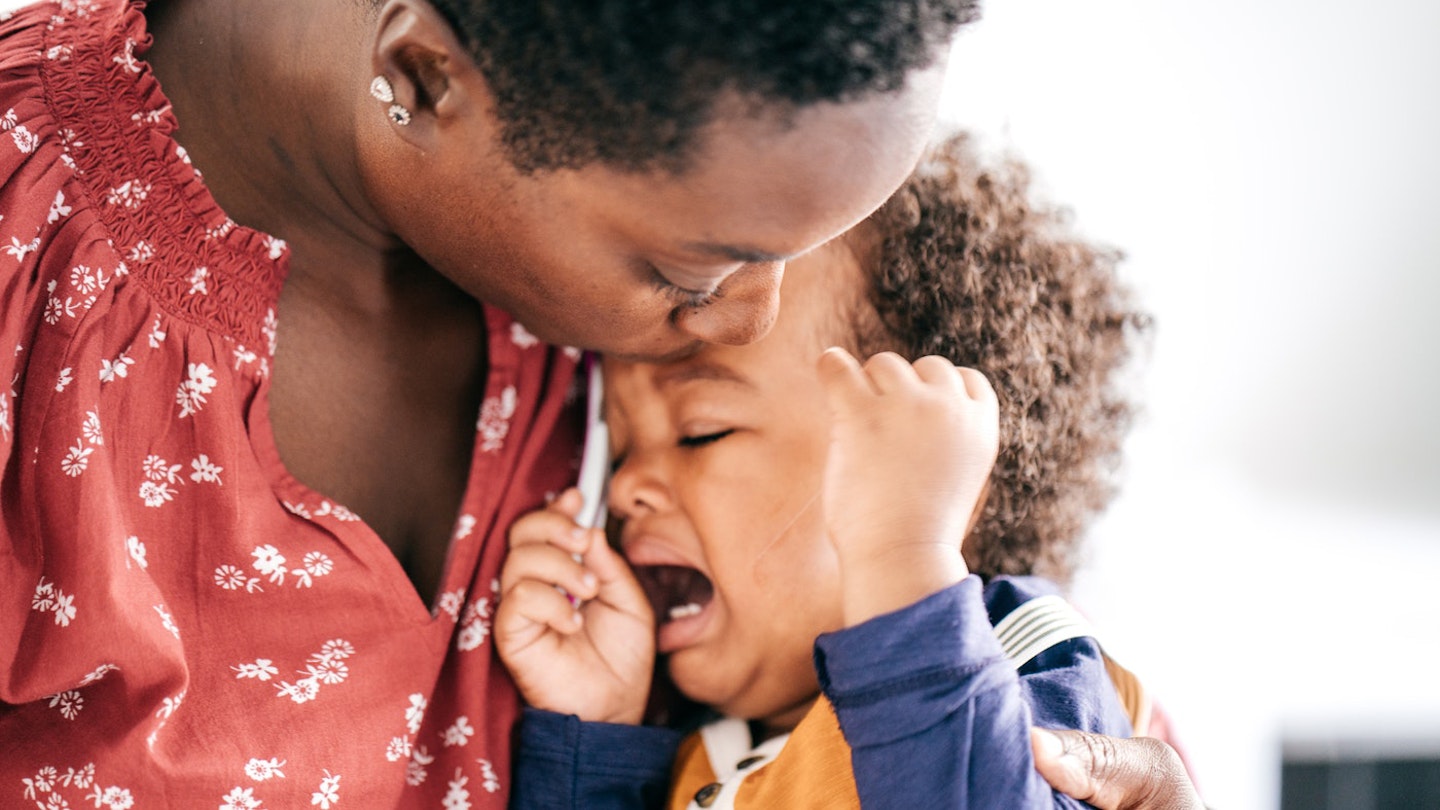Toddler-hood comes with all sorts of exciting milestones, learning to talk, walk and becoming more independent every day. But with these exciting markers comes the dreaded "terrible twos" and inevitable toddler tantrums.
Whether it's a meltdown in your local shop, a splatter-fest at your toddler's dinner time or the delightful toddler sleep regression, the terrible twos can truly be a terrible time for everyone involved.
We know it can be really stressful dealing with these outbursts from your little one, so we've put together a guide, inspired by real mums' tips, on how to deal with toddler tantrums without having one yourself.
What are the terrible twos?
The famous terrible twos are a completely normal part of being a toddler. They are defined by outbursts or tantrums, defiant behaviour or generally having a very frustrated toddler. They can start anywhere from 18 to 30 months and can even carry on until your child is four. They do become less frequent as your child gets older though, so there's light at the end of the tunnel.
Milestones during toddlerhood include walking, talking, having opinions, learning about emotions and learning how to take turns and share. They will want to explore their environment and do what they want on their own terms, but will sometimes lack the emotional, physical and linguistic abilities to do so.
Your toddler might experience tantrums during this time because with every milestone they're becoming more independent and curious, but lack the emotional and language skills to express how they feel or what they want to do.
For example, your little one might really want to pour their own milk, but lack the dexterity to do so, so get frustrated when they can't do this for themselves.
Signs of the terrible twos:
• Tantrums
• Hitting
• Kicking
• Biting
• Frustration
• Throwing things
• Opposition
• Mood swings
These are all totally normal signs that your toddler has entered the terrible twos.
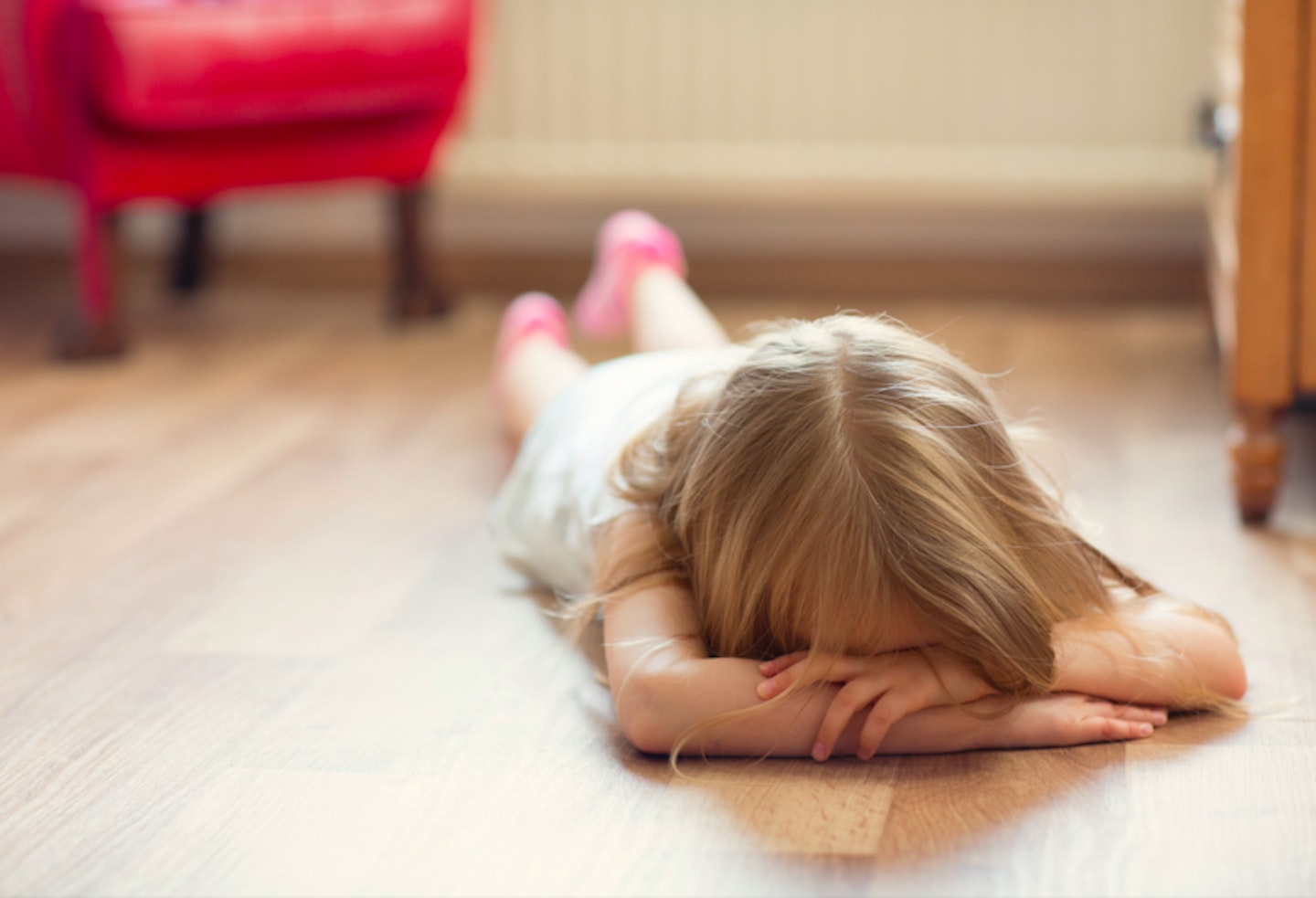
How long do the terrible twos last and when will they end?
The terrible twos can begin as soon as your child becomes a toddler, which is usually between one and three years old. Usually, by the time your child turns four, they have enough language skills to express how they feel and what they want.
If these problems persist as your child gets older, it could suggest there are further behavioural issues to address, so if your child is starting school and still biting, kicking, injuring themselves, having 10-20 tantrums a day, tantrums that last over 25 minutes or if they have an inability to calm themselves, it might be worth speaking with your GP with any concerns you have.
How to deal with tantrums during the terrible twos
• Don't rehash the bad behaviour, your toddler won't really understand what they've done wrong. Make sure you praise the good behaviour when it does happen, and give them a big hug when they've calmed down and tell them you love them.
• Consider their tiredness and hunger. We're all a little cranky when we need food or sleep, so it's understandable when your tot is also feeling this.
• A good way to deal with a tantrum in public is to stay calm, acknowledge that your child feels angry about something and hold them firmly until they stop struggling, letting them know you love them but not their behaviour.
• Sometimes you just have to let them be angry and take them to run around in an outside space, everyone feels angry sometimes, including your little ones.
• Try to stick to a routine where possible to help keep your tot safe. Keep to regular eating times, play times and sleepy times.
For more ways to deal with tantrums, read 8 ways to manage toddler tantrums according to a psychologist
Some tips from Mother&Baby's #mumtribe:
• Give your little one some choices to help give them some control and freedom. It doesn't have to be big things, but little things like what cuddly toy they want to take with them or what snack they'd like.
• Pick your battles - does it really matter if your toddler wants to wear wellies or an Elsa dress to the park? Some things aren't worth the tantrum.
• Don't give in or try and reason with your toddler. They aren't old enough to understand why they can't pick up that bottle of prosecco from the bottom shelf of the supermarket so don't try explaining it to them. Remain calm and try not to match your child's anger with your own.
When do the terrible twos end?
There's not a sudden change in behaviour the moment your child turns three, and it's likely this pattern of behaviour will continue until they're around four or five.
Remember, these tantrums are a very normal part of their behaviour. If you are concerned that your child's tantrums are lasting a little too long or if they're on the verge of injuring themselves during their tantrum, you might want to speak to their doctor.
23 tweets that sum up the terrible twos
Mums, we’ve all been there – the terrible twos that just seem to go on for years. Luckily, you’re not on your own and to give you a bit of a laugh, we’ve found our favourite tweets on Twitter that sum up those #terribletwos moments.
Terrible twos
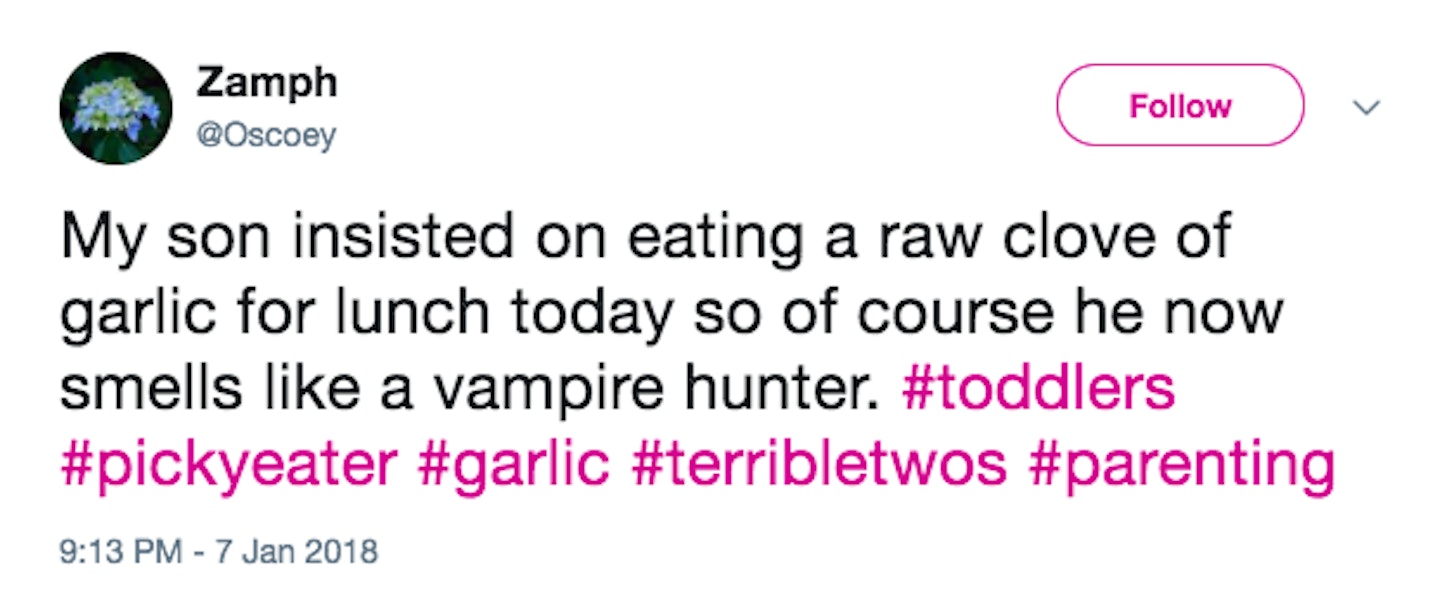 1 of 23
1 of 23Picky eaters
 2 of 23
2 of 23Fashion meltdown
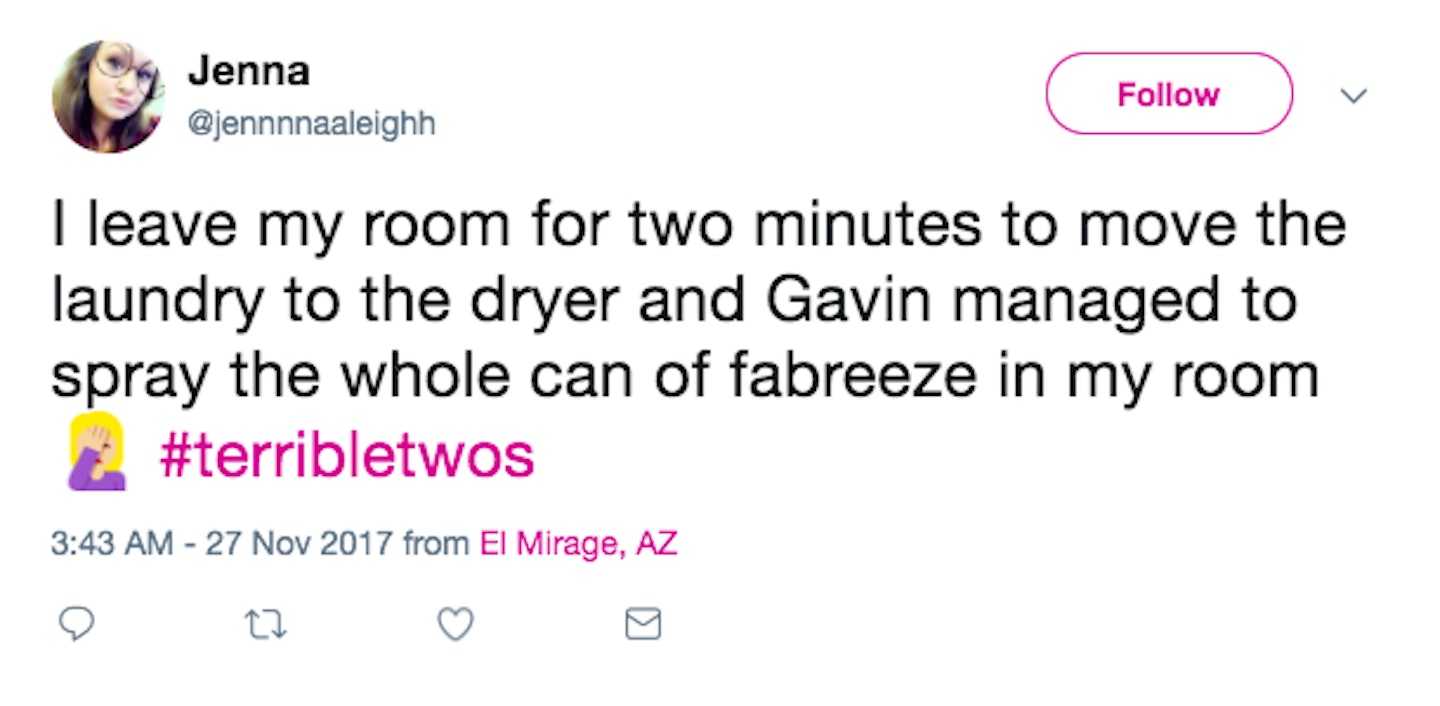 3 of 23
3 of 23Helping with the chores
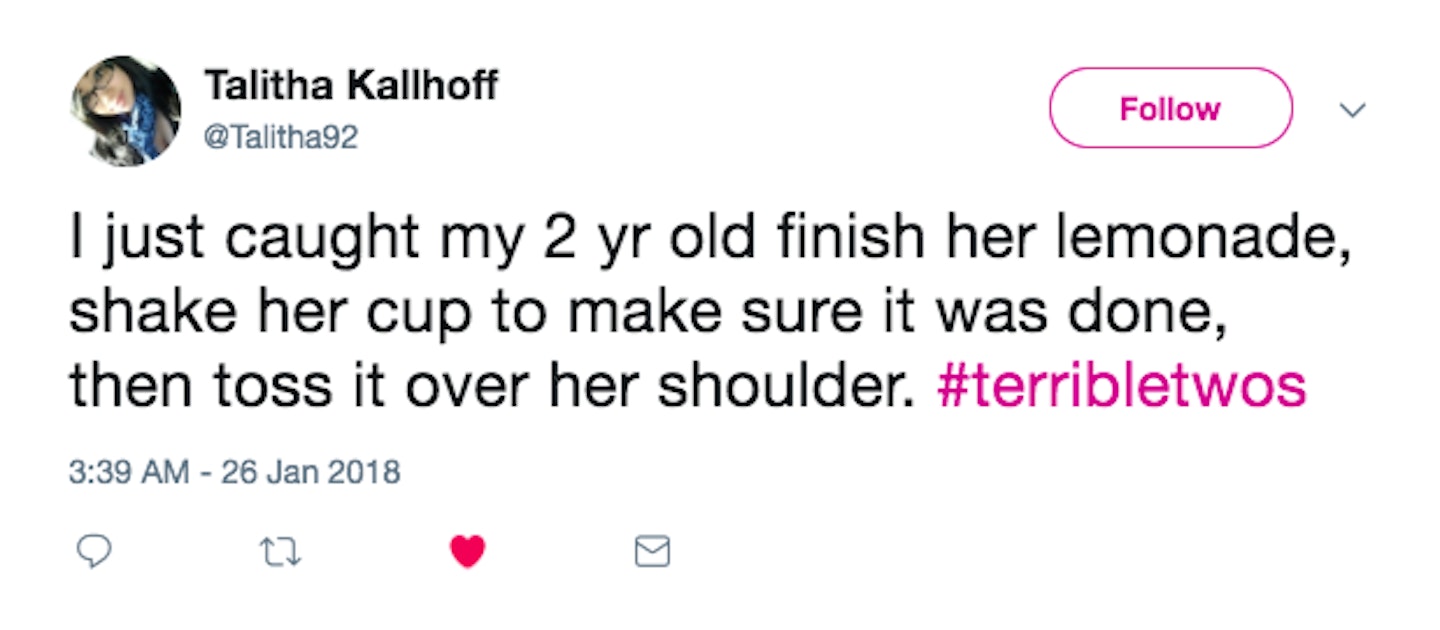 4 of 23
4 of 23Dinner time fun
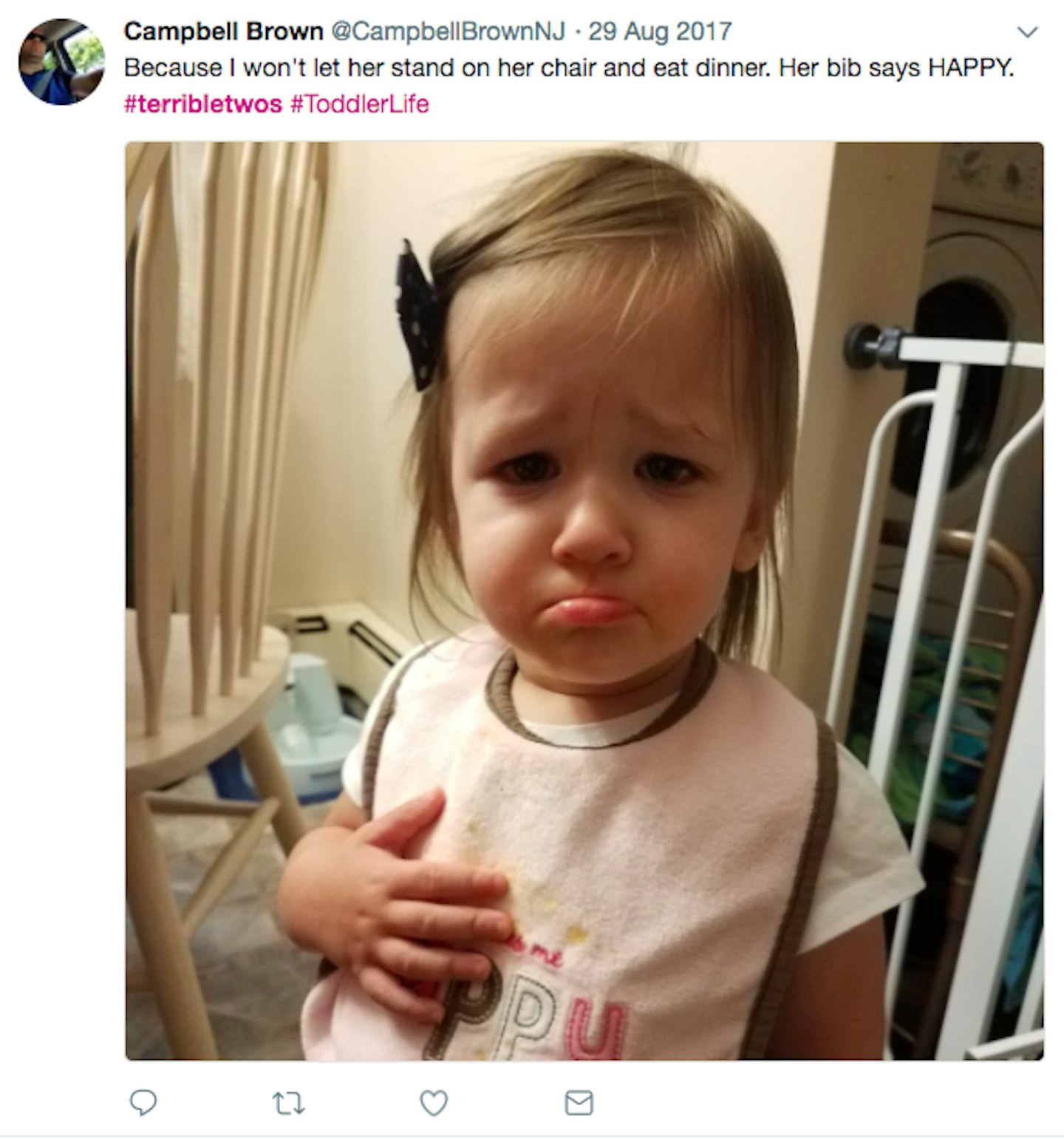 5 of 23
5 of 23Sad face
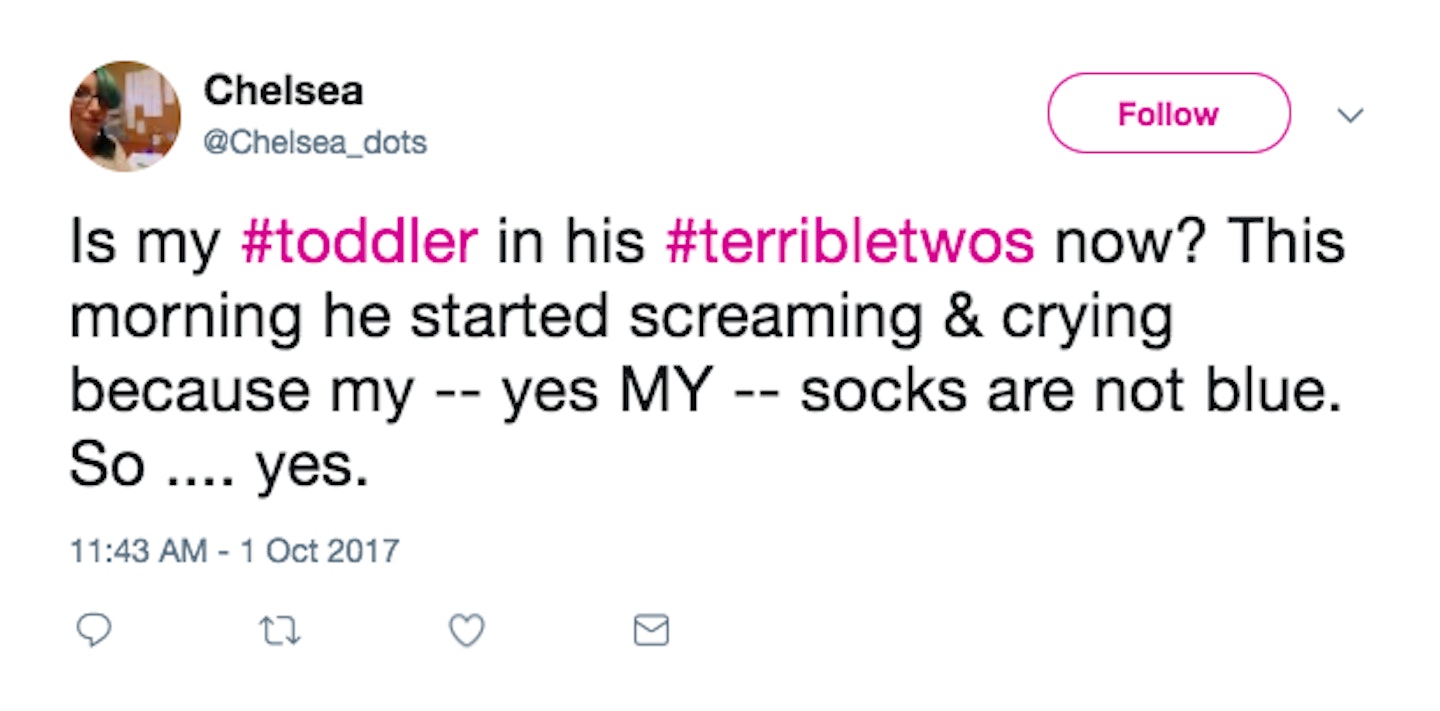 6 of 23
6 of 23A tantrum over socks
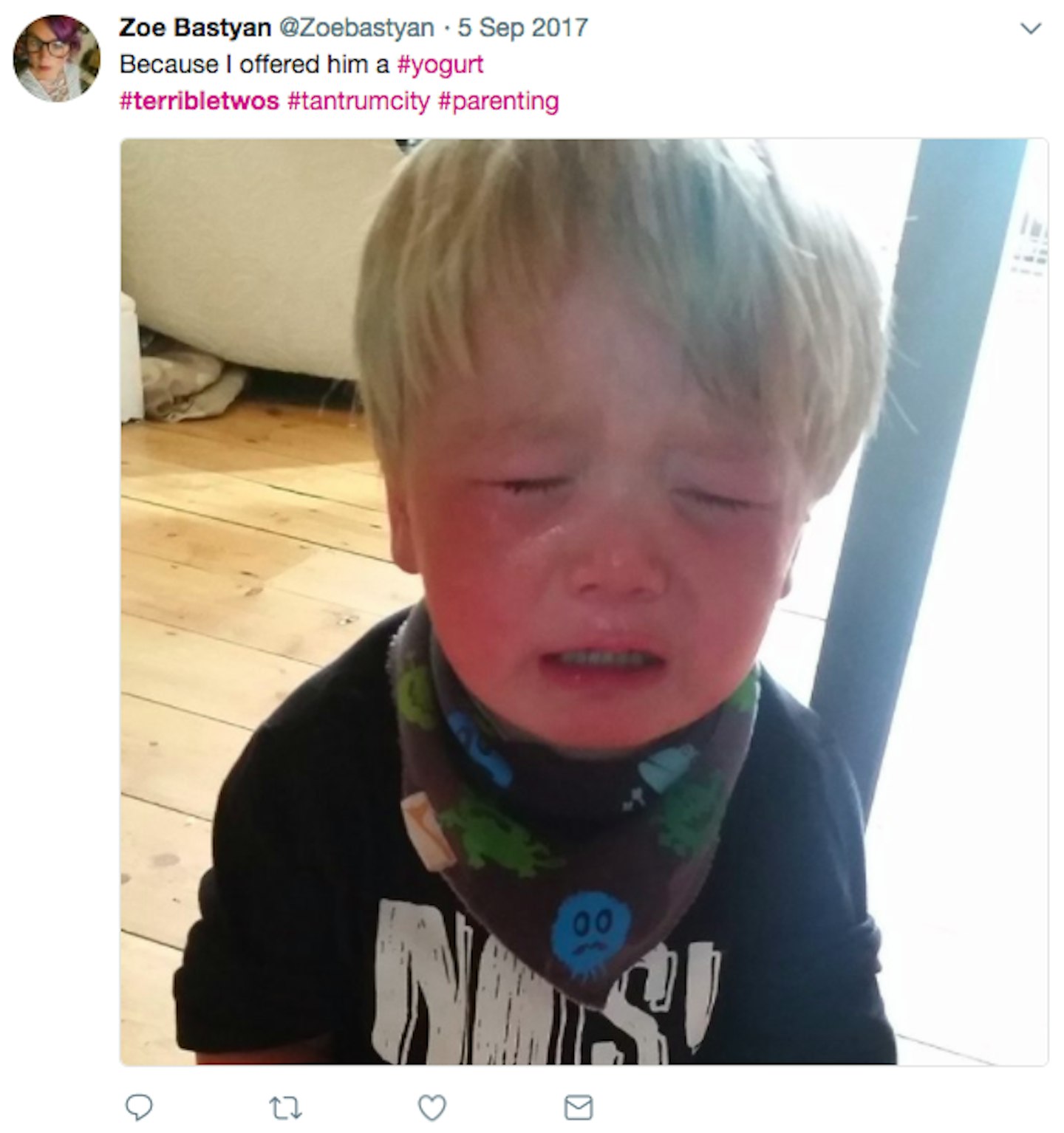 7 of 23
7 of 23Yoghurt tantrum
 8 of 23
8 of 23Loo roll monster
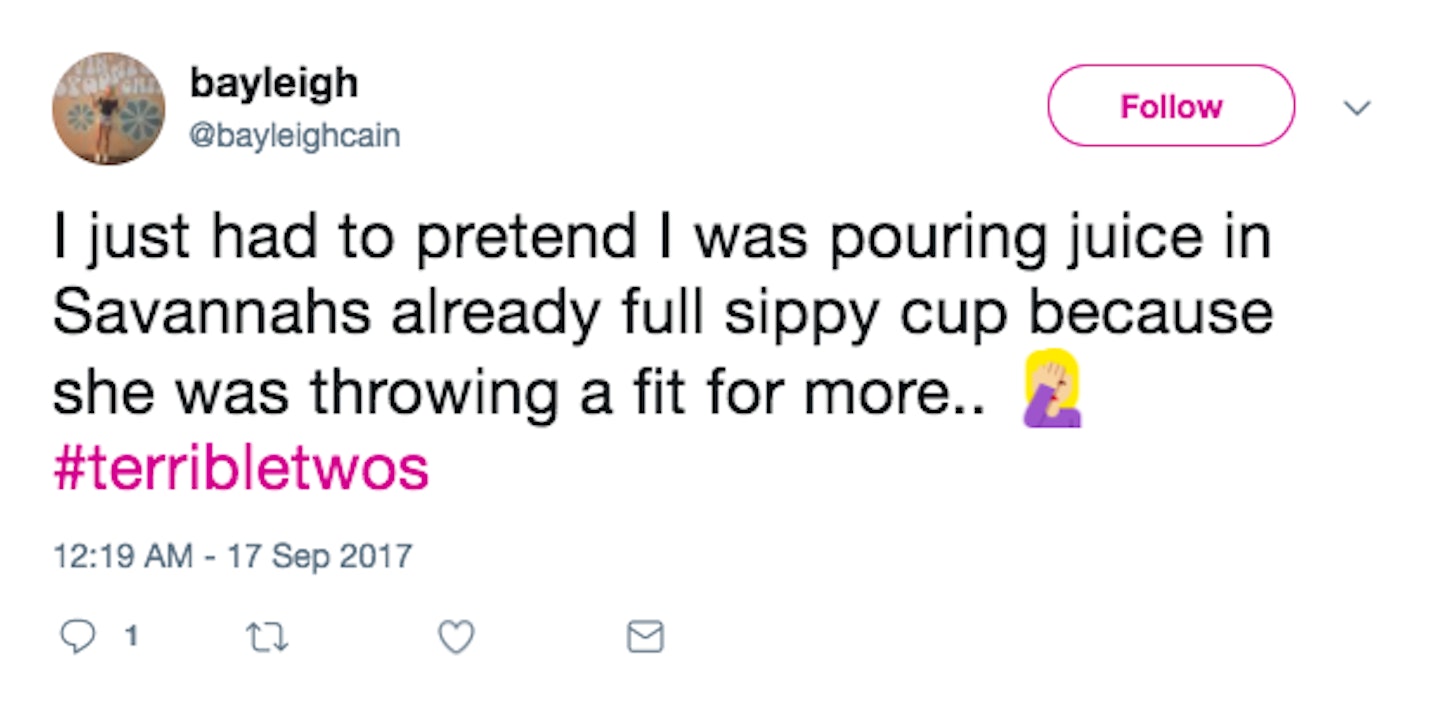 9 of 23
9 of 23Sippy cup meltdown
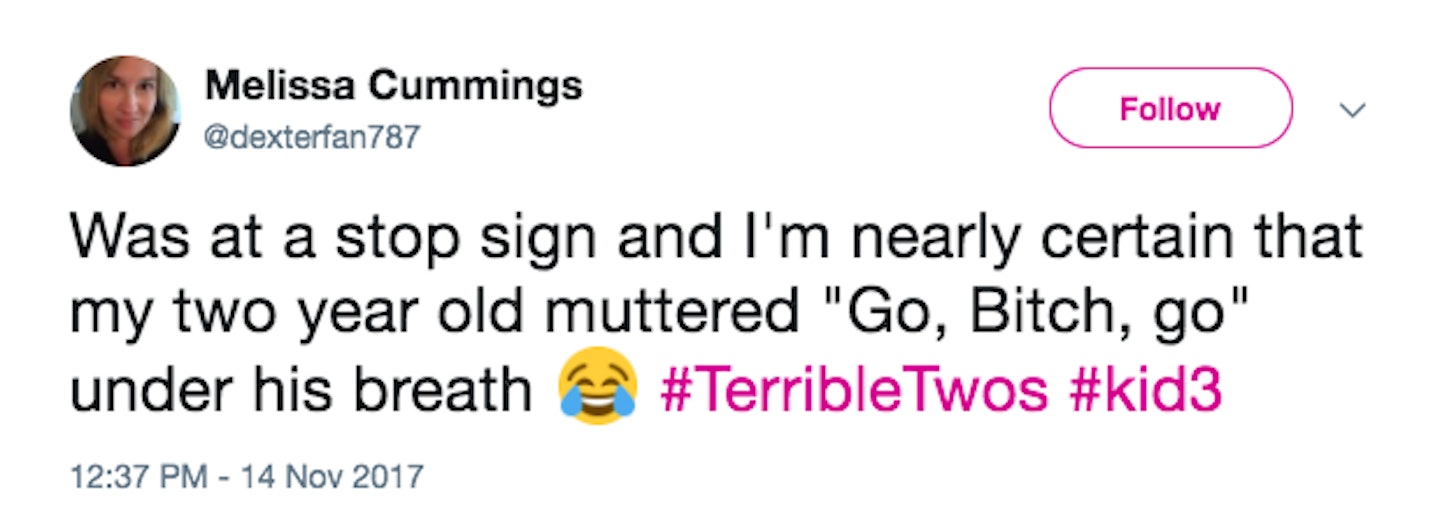 10 of 23
10 of 23Back seat driver
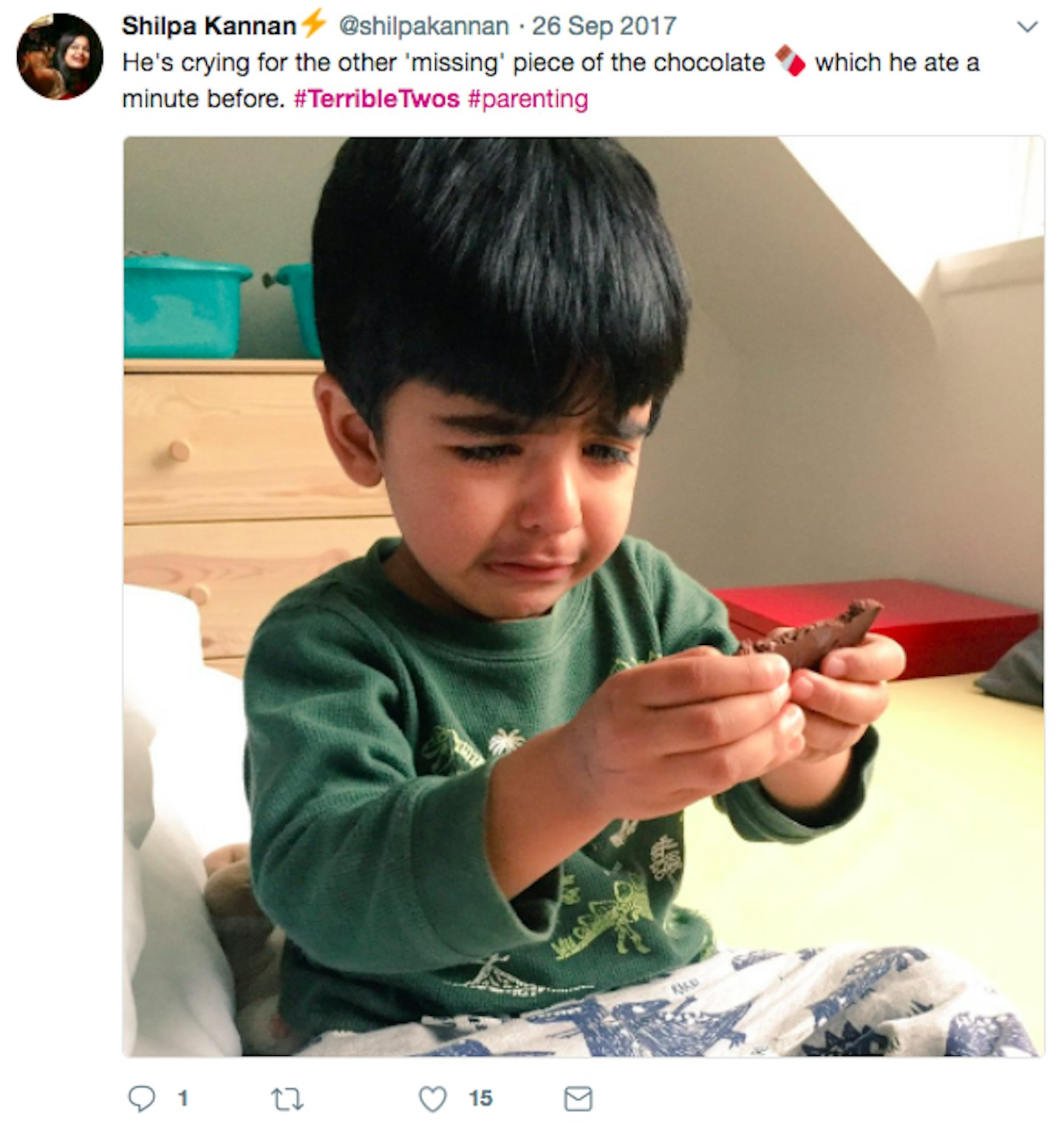 11 of 23
11 of 23Chocolate tantrum
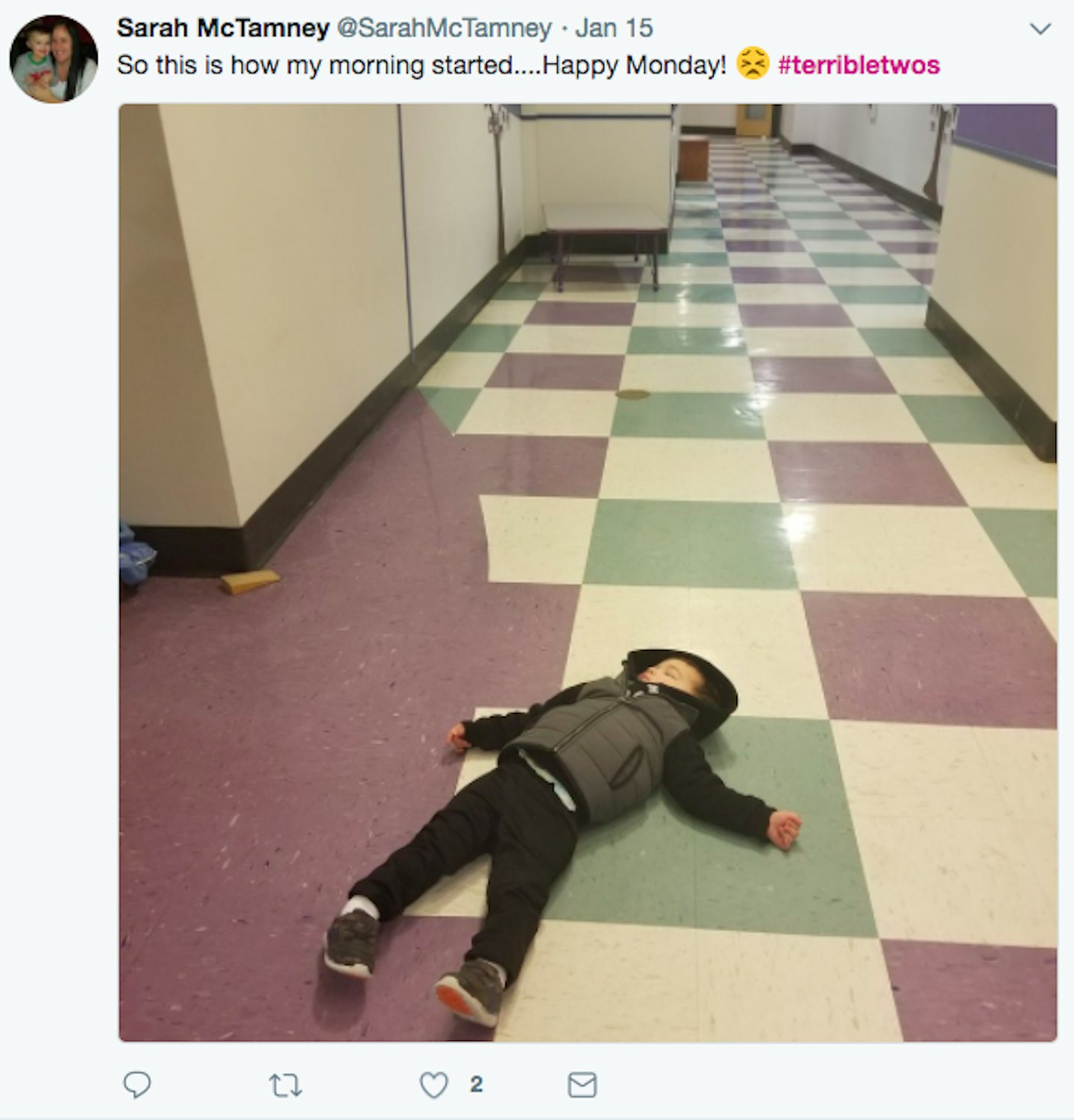 12 of 23
12 of 23When it all gets a bit too much
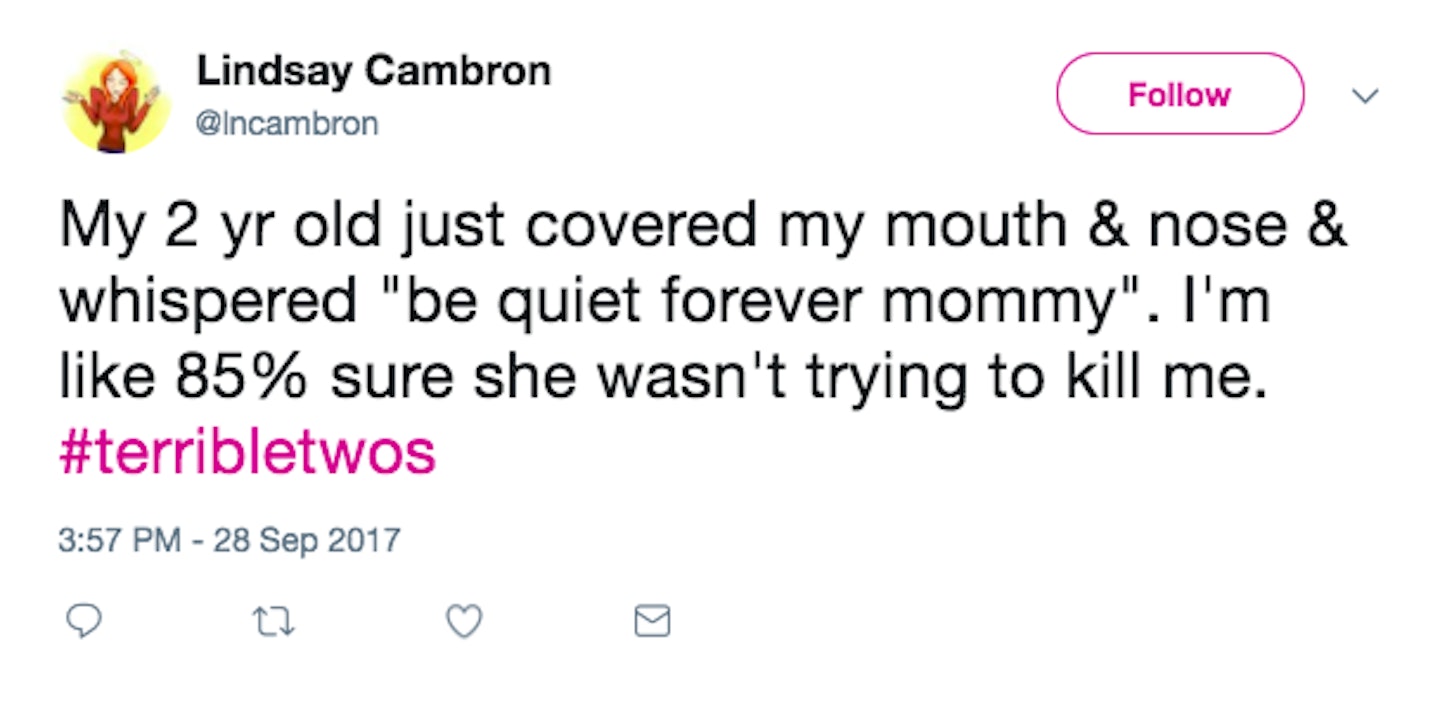 13 of 23
13 of 23Silenced
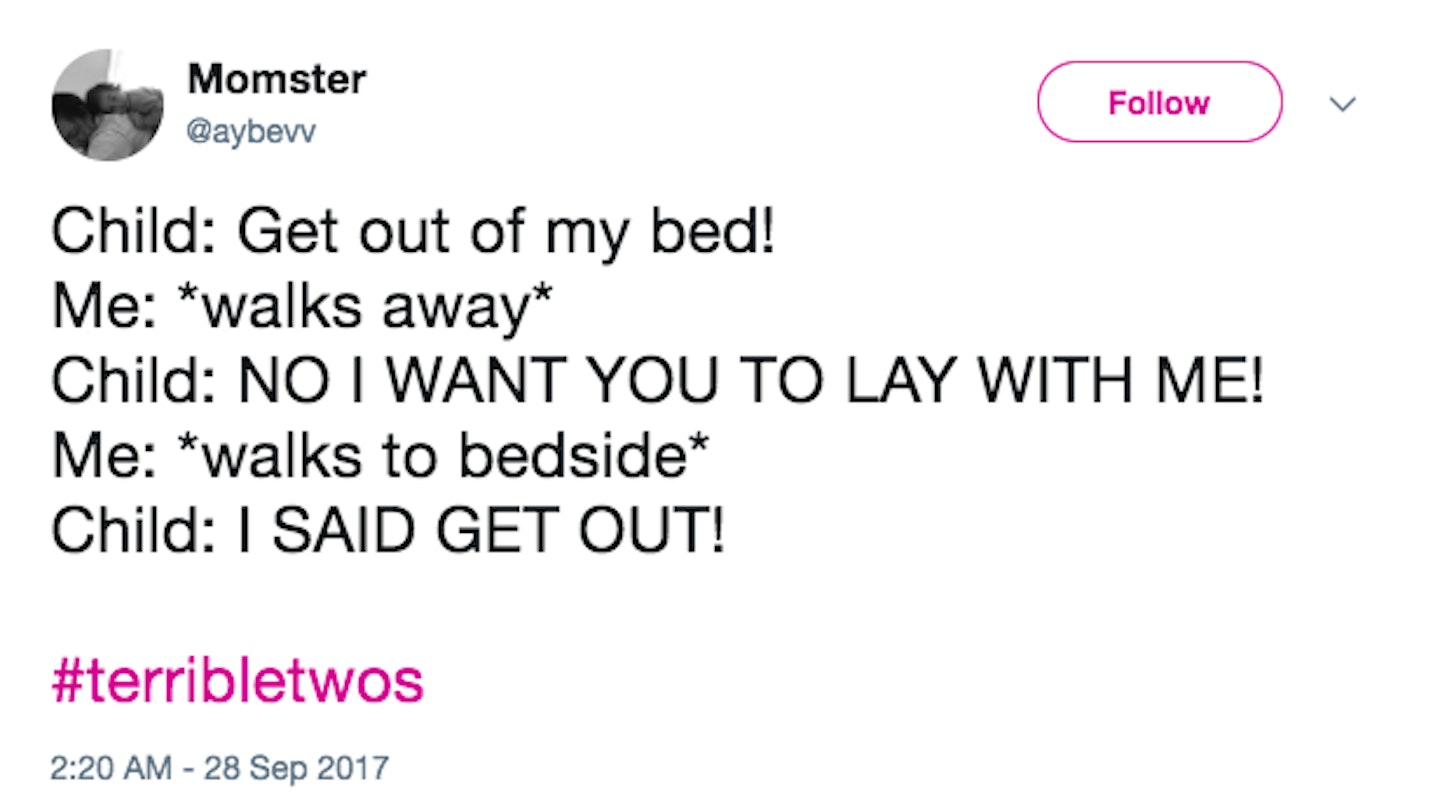 14 of 23
14 of 23Bedtime tantrums
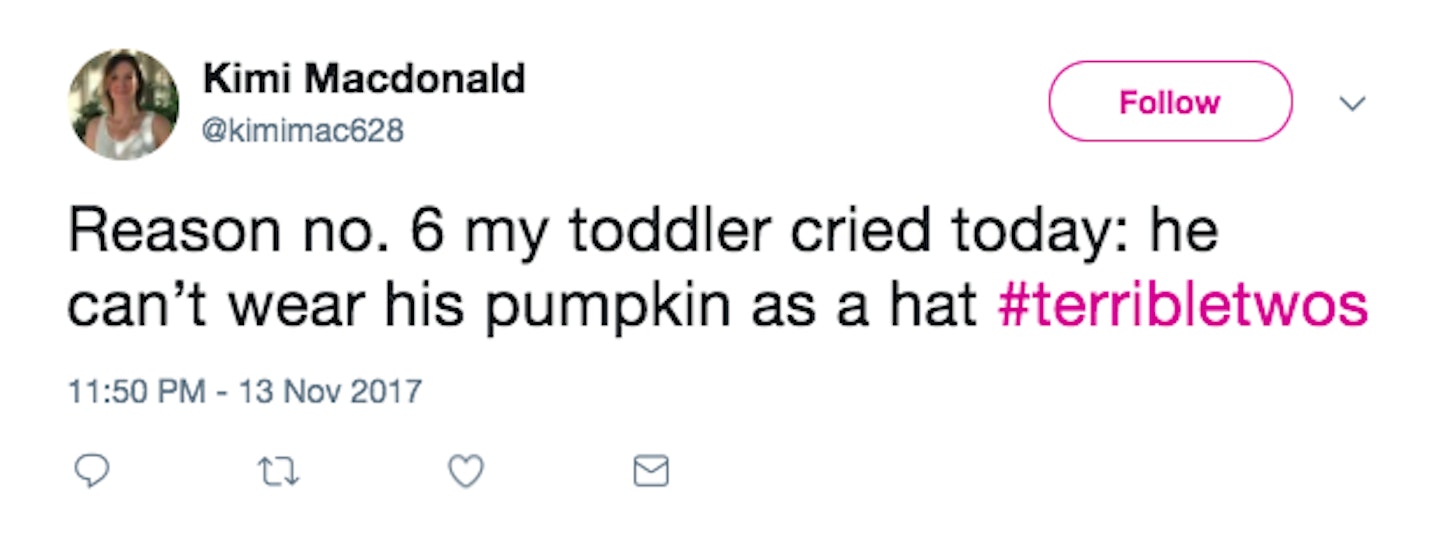 15 of 23
15 of 23Pumpkin problems
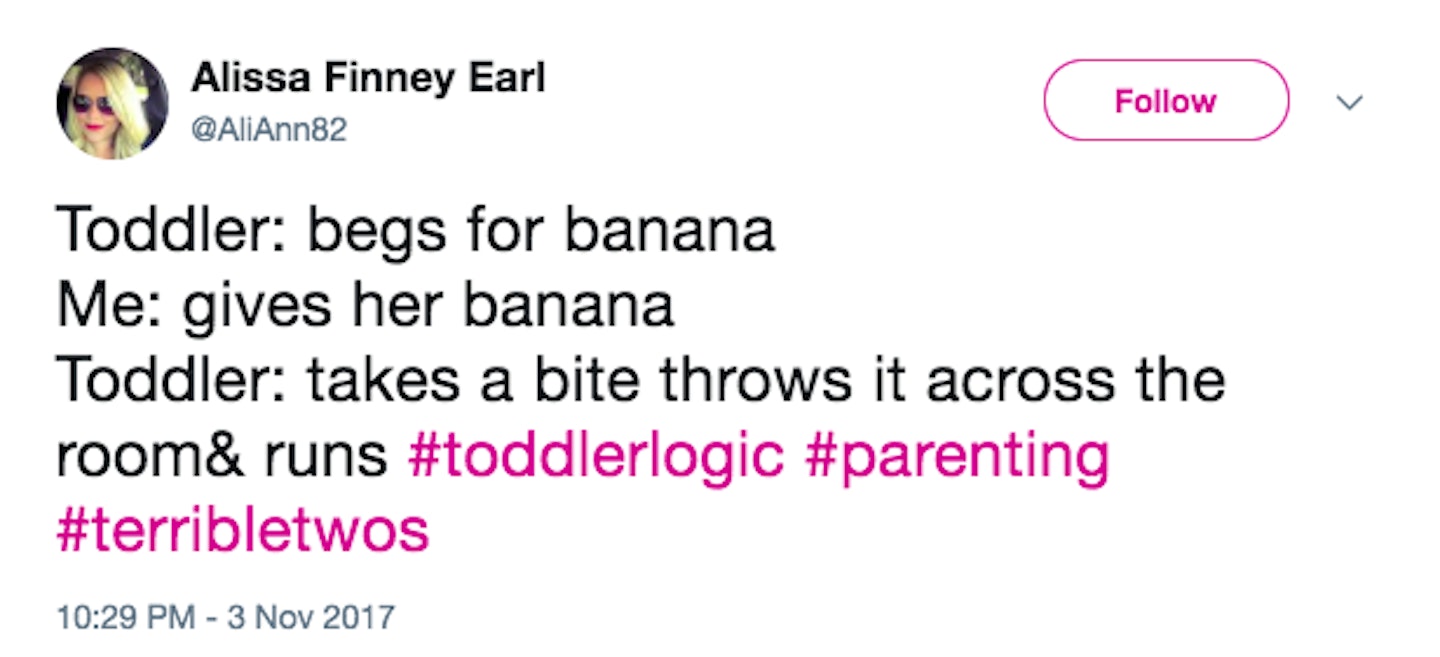 16 of 23
16 of 23Banana meltdowns
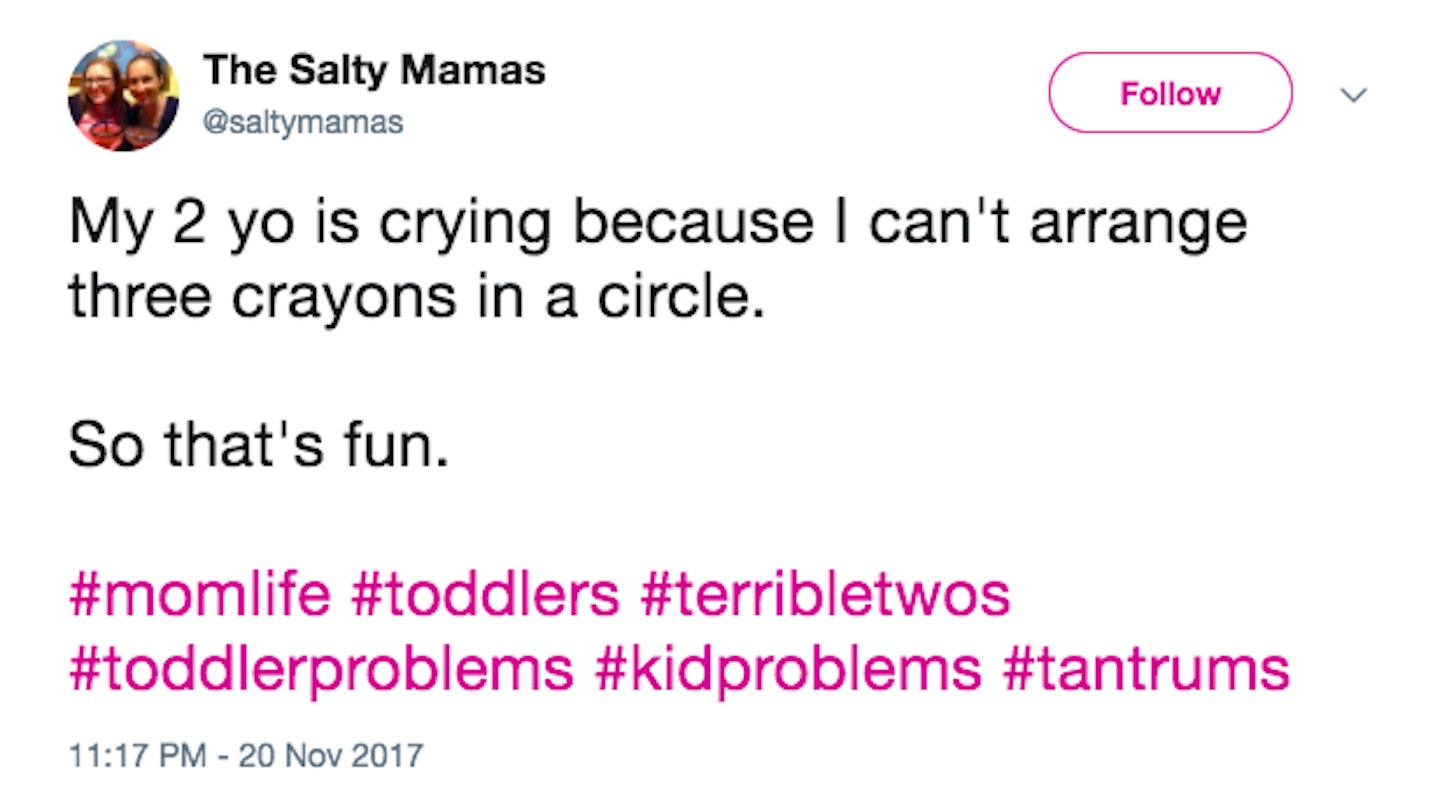 17 of 23
17 of 23Crying over crayons
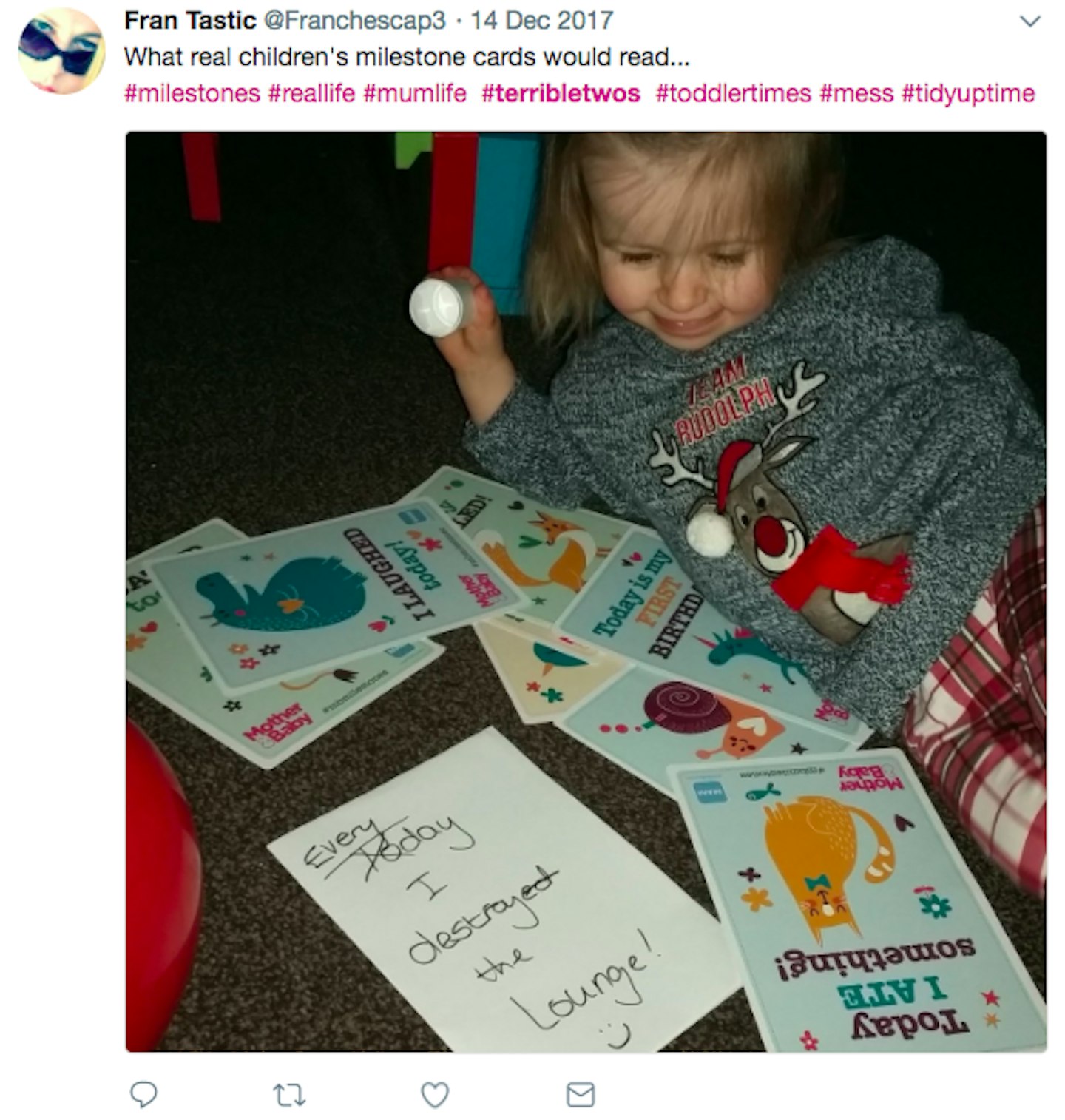 18 of 23
18 of 23Funny milestones
 19 of 23
19 of 23Teeth cleaning battles
 20 of 23
20 of 23Dinosaur tears
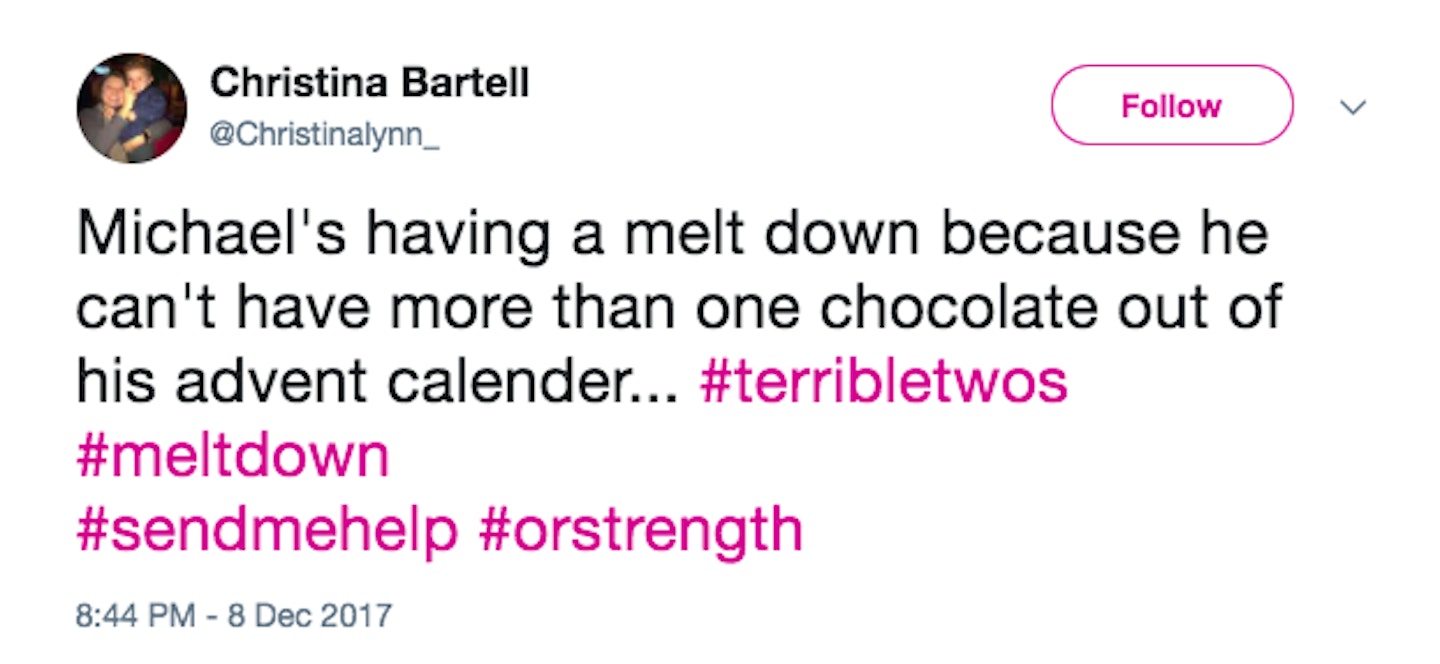 21 of 23
21 of 23Christmas meltdown
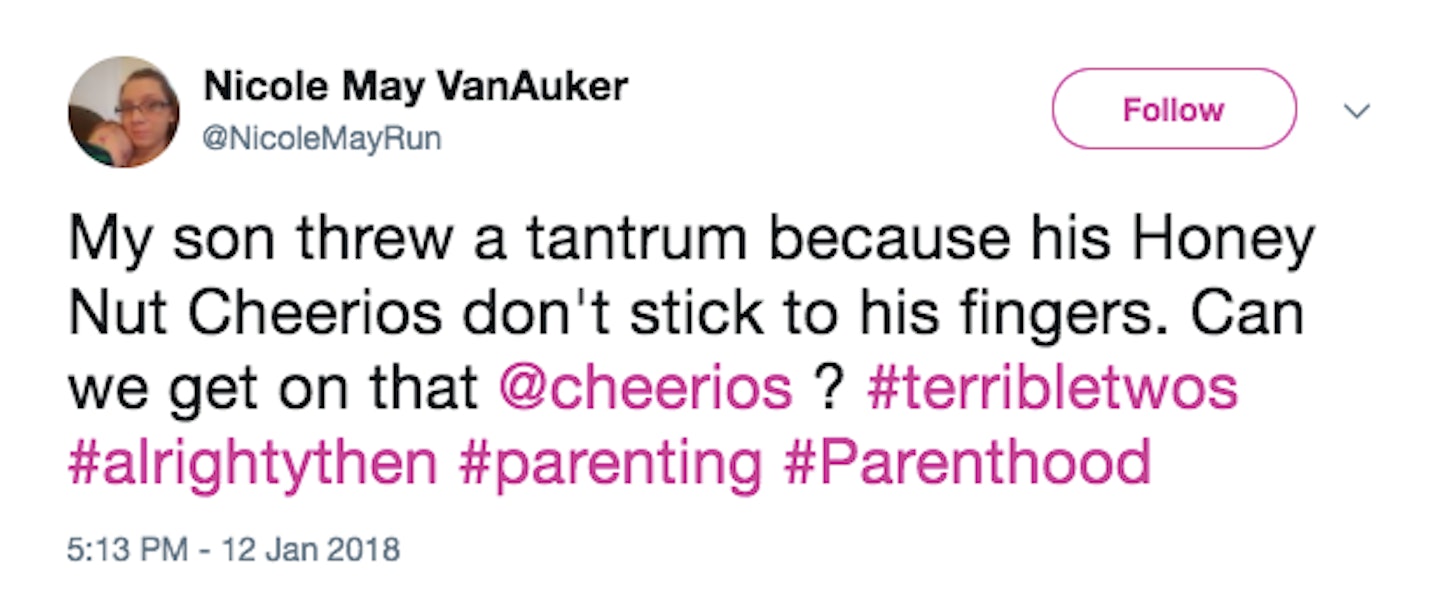 22 of 23
22 of 23Breakfast barney
 23 of 23
23 of 23Hangry
When to seek help
It might feel overwhelming when your toddler is acting out, and if you're feeling low or worried then you can absolutely ask for help. If your child is displaying worrying behaviours during their terrible twos, tantrums are extremely frequent, or you find yourself always giving in to them, a trip to see your GP could do wonders. You could also try speaking to your health visitor, calling the Family Lives support line 0808 800 2222 or visiting the Family Lives site.
Examples of worrying behaviour for toddlers include:
-
Tantrums that include hitting, biting, kicking or other violent behaviour more than half the time
-
If your child tries to injure themselves during a tantrum
-
If a tantrum occurs 10-20 times in a day
-
If a tantrum lasts more than 25 minutes
-
If your child is consistently unable to calm themselves
-
If your child is withdrawn or not seeking attention from others or not making eye contact
-
If the tantrums are causing you a lot of stress
Books to help with the terrible twos
